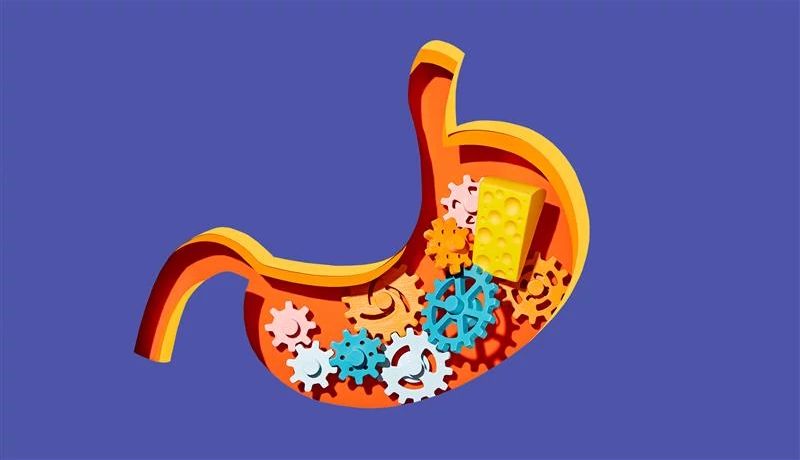AARP Hearing Center


Your digestive system is hard at work 24/7. With breakfast, lunch, dinner and snacks in between, breaking down food into nutrients for use as energy, growth and cell repair is an exhausting schedule.
After decades of this routine, your digestive system would probably like to retire. While that’s not an option, it does slow down as you get older, which can give rise to new health challenges.
Here’s a look at what happens to your digestive system as you age and how you can alleviate some common complications.
Digestive changes — from gum to bum
Digestion starts in your mouth, says Sarah Cook, a registered dietitian at UR Endocrinology at Highland Hospital in Rochester, New York. Many older adults have xerostomia, “a fancy way of saying lack of saliva or dry mouth,” Cook explains, making it difficult to taste and swallow food.
This is often a side effect of medications like muscle relaxers and those taken for allergies, depression and Parkinson’s disease. Cook points out that our teeth age, too, and those changes can also interfere with chewing, swallowing and digesting.
From your mouth, your chewed food — now a small ball called a bolus — enters your esophagus, which starts pushing it toward your stomach. However, aging muscles are not as strong as they once were, and a decrease in muscle contractions makes it harder for food to move through the digestive tract, slowing digestion and creating a feeling of fullness.
“Often [older adults] don’t feel hunger, and they have a decreased appetite, which can lead to all kinds of problems,” such as not getting enough calories or making poor nutritional choices and “eating things that are more pleasurable versus more nutrient-dense,” says Sandra Darling, an osteopathic physician in the Department of Wellness and Preventive Medicine at the Cleveland Clinic.






































































More From AARP
Stomach Symptoms You Shouldn’t Ignore
There are a few gastrointestinal symptoms you shouldn't write off. Here are 10 to look out for and what they may mean.
4 Foods to Eat (and 6 to Avoid) for Stomach Ulcers
Find out which foods to eat if you have an ulcer or are prone to them, and some things you may want to avoid.
25 Great Ways to Get a Flatter Stomach
Tips on how to lose belly fat and get a tighter tummy